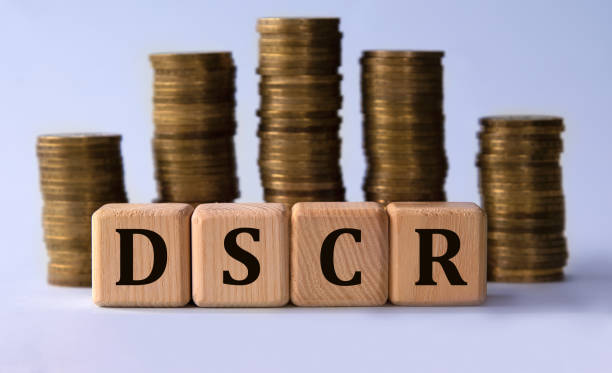DSCR Loans and Down Payments in Florida? If you’re diving into the world of investment property loans, you’ve probably stumbled upon the term DSCR loans. But what exactly are they, and how do they impact your down payment when buying property in the Sunshine State? Let’s unravel these concepts together in this easy-to-follow guide, shedding light on how DSCR loans can be a strategic choice for investors in Florida’s dynamic real estate market.
What is a DSCR Loan?
First things first—DSCR stands for Debt Service Coverage Ratio. It’s a technical term that lenders use to evaluate whether a property can generate sufficient income to cover its mortgage payments. In essence, DSCR loans are designed for income-generating properties, such as rental homes or commercial spaces, where the property’s income is pivotal in securing the loan.
Here’s how it works: lenders examine your property’s anticipated income and compare it to the mortgage payment. If your property can comfortably cover the mortgage and still have some surplus, you’re in good shape! This metric helps lenders assess the risk associated with the loan and influences their decision on how much they’re willing to lend you. By understanding the DSCR, investors can better align their property choices with lender expectations, potentially easing the loan approval process.
Why Choose a DSCR Loan in Florida?
Florida is a hot spot for real estate investment, thanks to its booming tourism industry and growing population. With a DSCR loan, you can tap into this lucrative market and potentially earn significant returns on your investment. The state’s diverse economy and influx of residents make it an attractive destination for both domestic and international investors looking to capitalize on rental and commercial opportunities.
Moreover, DSCR loans often come with flexible terms and competitive rates, making them an attractive option for savvy investors. Florida’s real estate landscape is as varied as its scenery, offering opportunities from beachfront condos to bustling urban centers. The flexibility of DSCR loans allows investors to tailor their financing to suit specific property types and investment strategies, enhancing their potential for success.
How Do DSCR Loans Work?
Now that we know what a DSCR loan is, let’s delve a little deeper into how they actually function. Understanding the mechanics of these loans can empower investors to make informed decisions that align with their financial objectives.
Calculating the DSCR
The Debt Service Coverage Ratio is calculated by dividing the property’s net operating income (NOI) by its debt service (i.e., mortgage payments). Here’s the formula:
[ \text{DSCR} = \frac{\text{Net Operating Income (NOI)}}{\text{Debt Service}} ]
A DSCR of 1 means the property is breaking even, while a ratio above 1 indicates that the property is generating more income than needed to cover its debts. Generally, lenders prefer a DSCR of at least 1.25, which means the property can generate 25% more income than its debt payments. This preferred ratio provides a buffer for lenders, assuring them that the property can withstand fluctuations in income and expenses.
Understanding the DSCR calculation can also help investors in property selection and management. By targeting properties with high NOI and efficient management, investors can improve their DSCR, making their loan applications more attractive to lenders. This proactive approach not only enhances loan approval chances but also contributes to long-term investment stability.
Loan Terms and Interest Rates
DSCR loans often offer flexible terms and interest rates. The specifics will depend on the lender and your property’s financials, but you can usually expect competitive rates and options for both fixed and adjustable-rate mortgages. It’s essential to shop around and compare offers to find the best fit for your investment strategy.
Flexibility in loan terms allows investors to align their loan structure with their financial goals. For instance, opting for a fixed-rate mortgage can provide stability in payments, while an adjustable-rate mortgage might offer lower initial rates. Understanding these options and negotiating terms tailored to your investment strategy can significantly impact your financial outcomes in Florida’s real estate market.
Down Payments for DSCR Loans in Florida
Now, let’s talk about the all-important down payment. When it comes to DSCR loans, the down payment requirements can vary depending on the lender and the property type. However, here are some general guidelines to keep in mind.
Minimum Down Payment Requirements
Most lenders require a minimum down payment of 20% to 25% for DSCR loans. This might sound like a hefty chunk of change, but remember that a larger down payment can help you secure better loan terms and lower interest rates. Moreover, a significant down payment reduces the lender’s risk, making you a more appealing borrower in their eyes.
Additionally, a substantial down payment shows lenders that you’re serious about your investment and capable of managing the financial responsibility. It also means you start with more equity in the property, which can be advantageous in building a strong financial portfolio. This equity can serve as a financial cushion, offering flexibility in managing future investments or unexpected expenses.
Factors That Influence Your Down Payment
Several factors can impact the down payment required for a DSCR loan in Florida, including:
- Property Type: Residential properties typically require a lower down payment than commercial properties, as they tend to be less risky for lenders. Understanding the nuances of different property types can help investors plan their finances and select properties that align with their investment goals.
- Borrower Profile: Your credit score, financial history, and experience in property management can all influence the down payment requirements. Strong financials and a good track record can lead to more favorable terms, highlighting the importance of maintaining a robust financial profile.
- Market Conditions: The Florida real estate market can be volatile, and lenders may adjust their down payment requirements based on the current economic climate and property demand. Staying informed about market trends and lender expectations can help you anticipate changes and prepare accordingly.
Tips for Securing a DSCR Loan in Florida
Getting a DSCR loan might seem like a daunting task, but with the right approach, you can navigate the process like a pro. Here are some tips to help you secure the best loan possible.
1. Do Your Homework
Research various lenders and loan options to find the best fit for your investment goals. Compare interest rates, fees, and terms to ensure you’re getting the most bang for your buck. Understanding the lending landscape can also help you identify lenders who specialize in DSCR loans, potentially offering more favorable terms and expertise.
Additionally, understanding the specific requirements of each lender can save you time and effort. Some lenders may prioritize certain financial metrics or property types, so aligning your search with these preferences can streamline your application process.
2. Boost Your Credit Score
A higher credit score can help you secure better loan terms and lower interest rates. Before applying for a DSCR loan, take steps to improve your credit score, such as paying off debt, making on-time payments, and avoiding new credit inquiries. A strong credit profile not only enhances your loan prospects but also reflects your financial discipline and reliability to lenders.
It’s also beneficial to review your credit report for any inaccuracies that could negatively affect your score. Correcting these errors can provide an immediate boost to your credit standing, further improving your chances of securing favorable loan terms.
3. Gather Your Financial Documents
Lenders will want to see your financial history and property projections, so be prepared with the necessary documentation. This may include tax returns, bank statements, and a detailed business plan for your investment property. Having these documents organized and readily available can expedite the loan process and demonstrate your preparedness to lenders.
Providing comprehensive financial information also allows lenders to fully assess your borrowing capacity and the viability of your investment, potentially leading to more favorable loan terms. A detailed business plan can further illustrate your investment strategy and commitment to property management.
4. Work with a Real Estate Professional
Hiring a real estate agent or broker with experience in investment properties can be invaluable. They can help you find the right property, navigate the loan process, and negotiate favorable terms. Their expertise and network can provide insights into market trends, property valuations, and potential investment opportunities.
A knowledgeable real estate professional can also act as an advocate during negotiations, ensuring that your interests are represented and securing the best possible terms for your investment. Their guidance can be particularly beneficial in a competitive market like Florida, where timing and strategy are crucial.
5. Be Prepared to Negotiate
Don’t be afraid to negotiate loan terms with lenders. If you have a strong financial profile and a solid investment plan, you may be able to secure better terms by demonstrating your value as a borrower. Negotiating can lead to lower interest rates, reduced fees, or more favorable loan conditions, enhancing your investment’s profitability.
Approaching negotiations with a clear understanding of your financial standing and market conditions can strengthen your position. Being open to alternative options, such as different loan structures or payment plans, can also lead to mutually beneficial agreements with lenders.
DSCR Loans and Down Payments in Florida
DSCR loans are a powerful tool for real estate investors in Florida, offering flexible terms and the potential for high returns. By understanding how these loans work and what lenders are looking for, you can position yourself for success in the Sunshine State’s competitive property market.
Remember, the key to securing a DSCR loan is to present a strong financial profile, do your research, and be prepared to negotiate favorable terms. With a little effort and determination, you’ll be well on your way to building a profitable real estate portfolio in Florida. Contact us today.
Happy investing!


